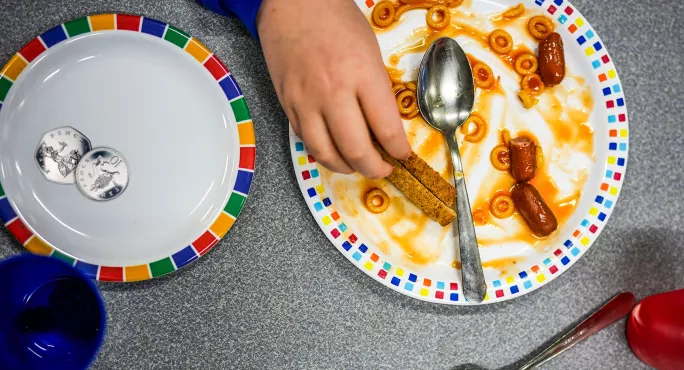Fact check: are school breakfast clubs getting 60p per pupil?

Critics of the governmentŌĆÖs early adopters breakfast-club scheme have repeatedly warned that schools are only getting 60p per pupil for food and staff.
And a Tes survey earlier this month revealed major concerns about the pilotŌĆÖs funding rates, with some schools saying they were having to dilute fruit juice and cancel hot food.
However, the Department for Education (DfE) denies this outright - and officials at this yearŌĆÖs Schools and Academies Show in London told Tes that most schools on the early adopter programme ŌĆ£will be receiving almost ┬Ż1 per childŌĆØ.┬Ā
While the DfE has since distanced itself from the ┬Ż1 claim, Tes has fact-checked how much money schools involved in the pilot are actually receiving.
What has the DfE said?
According to government funding documents, early adopter schools will be getting a 60p-per-day additional rate for each pupil who attends a breakfast club.
This rises to 78p for pupils on free school meals.┬Ā
There is also an initial one-off set-up cost of ┬Ż500.┬ĀThe DfE said that this could be spent on equipment needed to set up or run a breakfast club.
However, it must not be spent on providing a free breakfast club, or used on any other provision.
Schools involved will also receive a recurring lump sum of ┬Ż1,099 each term to cover administration and staffing.
says the basic per-pupil amount covers the provision of food and basic staffing costs only.
This means that schools get 60p to cover not only food for a pupilŌĆÖs breakfast, but also staffing.
Schools will then receive payment in arrears based on the number of pupils who accessed the club and the characteristics of pupils.
The DfE has told Tes that because schools are receiving two additional payments, the average per-pupil top-up rate is higher than 60p.
However, it was not able to say what this average per-pupil rate is across the pilot schools.
ŌĆśWhatever the amount, itŌĆÖs not enoughŌĆÖ
Stephen Morales, CEO of the Institute of School Business Leadership (ISBL), said: ŌĆ£If theyŌĆÖre suggesting that itŌĆÖs nearly ┬Ż1 per pupil, are they not doing a bit of double counting there?
ŌĆ£ItŌĆÖs still 60p per pupil - the set-up costs are the set-up costs. I donŌĆÖt think that changes anything; itŌĆÖs just a different way of framing it.
ŌĆ£Almost all our members tell us that what they are getting is not enough, whether it is 60p per pupil or almost ┬Ż1, so I think that question is kind of a red herring.ŌĆØ
┬Ż1 per child ŌĆśnothing to celebrateŌĆÖ
Julia Harnden, funding specialist at the Association of School and College Leaders, said: ŌĆ£We do not think a funding rate of almost ┬Ż1 per child, when including set-up costs, is anything to celebrate.
ŌĆ£It is certainly not enough to ease concerns that many schools will be left with significant shortfalls if funding is not improved when the scheme is rolled out nationally.ŌĆØ
Ms Harnden said the DfE must listen carefully to feedback from early adopters to make sure the scheme does not end up ŌĆ£being financially damaging for schoolsŌĆØ.
Lessons for national rollout
School leadersŌĆÖ union NAHT general secretary Paul Whiteman said many schools were concerned that they would have to subsidise the breakfast clubs from their own budgets and decided not to proceed based on the guidance.
ŌĆ£The government has reassured us that it will be looking closely at funding sufficiency during the pilot; learning from that will be crucial ahead of the expansion of the scheme.ŌĆØ
Want to keep reading for free?
Register with Tes and you can read five free articles every month, plus you'll have access to our range of award-winning newsletters.
Register with Tes and you can read five free articles every month, plus you'll have access to our range of award-winning newsletters.
Keep reading for just ┬Ż4.90 per month
You've reached your limit of free articles this month. Subscribe for ┬Ż4.90 per month for three months and get:
- Unlimited access to all Tes magazine content
- Exclusive subscriber-only stories
- Award-winning email newsletters
You've reached your limit of free articles this month. Subscribe for ┬Ż4.90 per month for three months and get:
- Unlimited access to all Tes magazine content
- Exclusive subscriber-only stories
- Award-winning email newsletters



